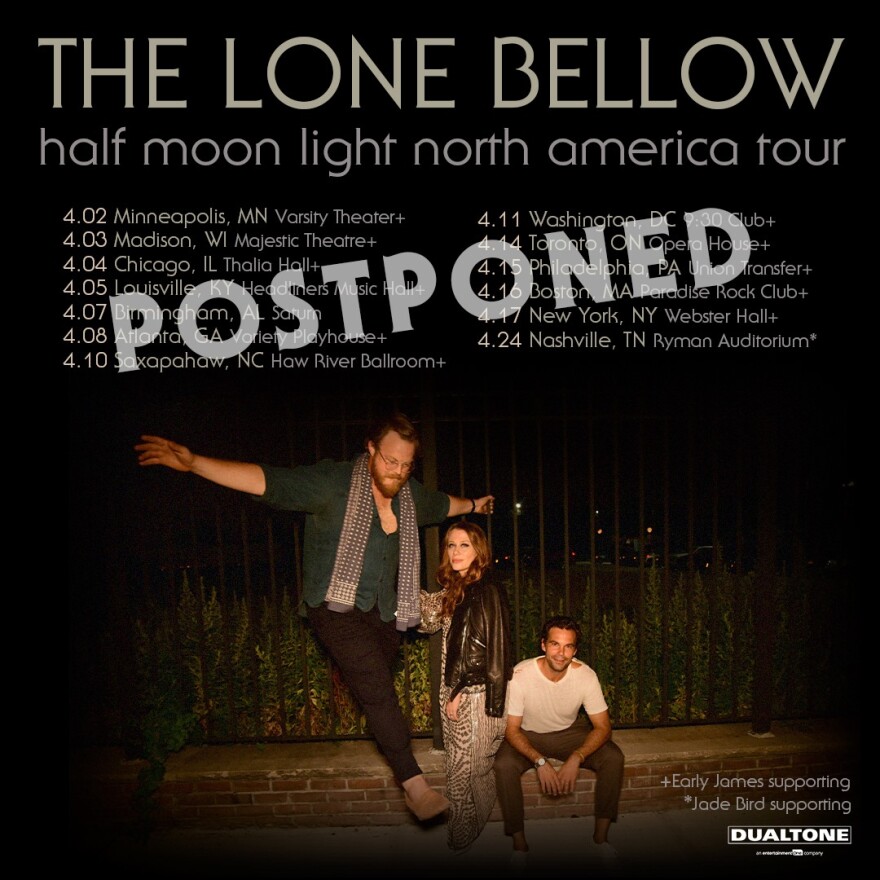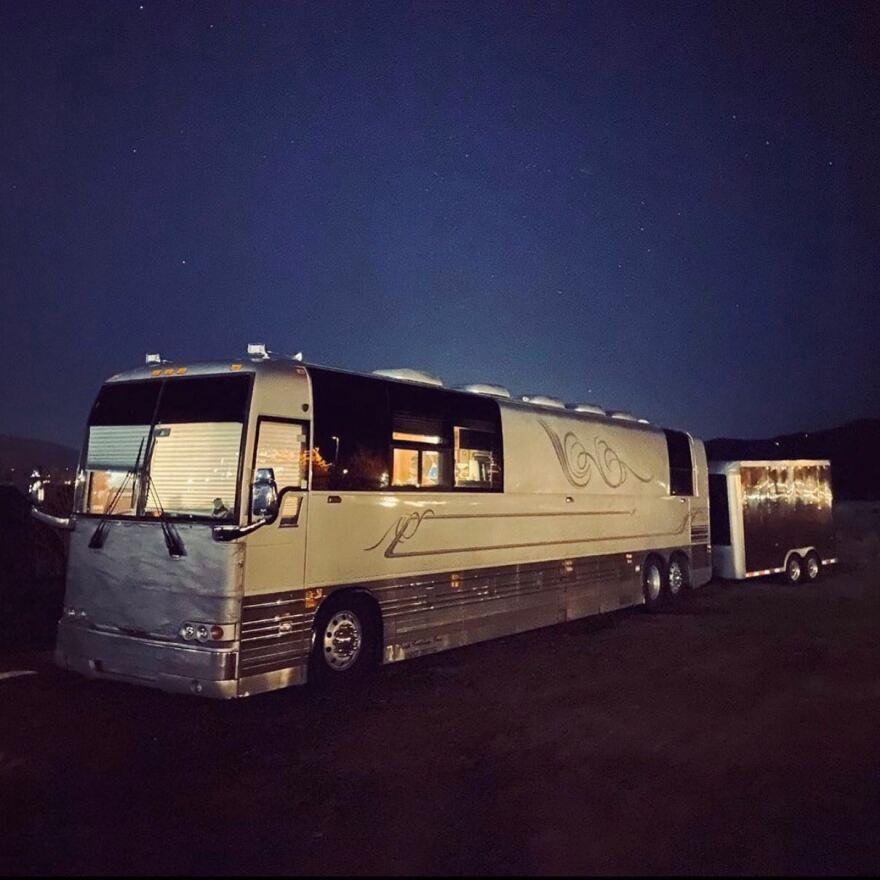March 12th was set to be a pretty exciting day here at the station. One of our favorite bands—Brooklyn’s The Lone Bellow—was scheduled to arrive in the early hours of the morning after driving overnight from Portland, and they were to perform live in our beautiful new studio for the first time. They hadn’t been out west in a couple of years, and the logistics and timing of their visit had been worked out over many months. March 12th was a Thursday. If you’re a live music fan, I bet there’s a date on your 2020 calendar that is now etched in your psyche the way March 12th is etched into mine.
As they walked off stage, they learned that their concert was the last one in Oregon.
The storm clouds started forming two days earlier. On Tuesday the 10th, The Ballroom Thieves stopped by the station for a session, and then headed downtown for a show at OSF’s Black Swan Theatre as part of the Ashland Folk Collective series. There was a moderate, intimate crowd assembled. Meanwhile, JPR was ramping up the promotion of an upcoming One World concert with the Weepies at the end of the month. All in all, a fairly normal day. But then late that night, I caught word that The Lone Bellow’s show in Seattle that same evening would be the city’s last. Large public events in Washington were done.
On Wednesday March 11th, The Lone Bellow played Portland’s Revolution Hall. As they walked off stage, they learned that their concert was the last one in Oregon. They loaded their tour bus in a haze, waiting for the east coast—home to its management and label—to wake up Thursday morning and start figuring out the band’s immediate future.

When I picked them up Thursday morning, everything was in a state of confusion. And we had to take extraordinary measures to even get our session recorded. After all, they’d just been in Seattle, where coronavirus cases were on the rise. Thankfully, we’ve got a side entrance that leads directly into the performance space. We could easily isolate the band from the rest of the station, with me in a separate control room, and we’d planned to let the room sit vacant for a week afterward, just to be safe.
As we wrapped up the session and phones got turned back on, almost simultaneously the text chimes started ringing. Zach, Brian, and Kanene (The Lone Bellow) learned that their show in San Francisco that night was off. And so was every other show on their massive tour. They were dead in the water. Effectively unemployed, thousands of miles from home, in a rented tour bus, with nowhere to go but home. It was the last “public” show for the Lone Bellow for over six months. It was also the last time I saw live music.
As we near the end of 2020, musicians and promoters across the country are beginning to dip their toes in the concert waters again. For many, it’s far too little and way too late. The layoff has been financially devastating. Legendary music venues like San Francisco’s Slim’s and Austin’s Threadgill’s are out of business. Hundreds of others are in a race against the calendar to get music—and money—flowing again. Earlier this year, the National Independent Venue Association launched the Save Our Stages campaign (www.saveourstages.com), designed to raise awareness for the particular plight of performance venues and pressure Congress for help. Concert tours have almost all been postponed to next spring. Even that is a rosy outlook, especially as coronavirus cases in many states are increasing.
Around our region, I don’t know of any music venues that have gone under, but I’m sure there are many on life support. Even when they’re allowed to hold events, public confidence in large gatherings may lag behind to such a degree that ticket sales are anemic. The recovery will probably be a slow trickle, as money, and safety seep back into our world. I feel for the hundreds of venues and thousands of struggling musicians (actors, dancers, and performers of all types) who have been cut off from their primary livelihood.
Creative folks find creative solutions. Musicians have been improving their online streaming capacity in an attempt to monetize their performances. They’ve launched Patreon accounts to create a new revenue stream. Through JPR’s Live (from afar) Sessions, I’ve helped many musicians get set up with the equipment they need to record high-quality material from home and connect with fans. Promoters have been creative, too. Case in point: Ashland Folk Collective’s ‘rolling concerts’—staged on a flatbed trailer that traveled a short neighborhood route and allowed people to watch and listen from the relative safety of their front porches. And organizers across the country bringing back the concept of the drive-in, modernized with micro transmitters broadcasting the action from the stage right to your safely sealed up automobile. Where there’s a will, right?
I miss expensive music festivals with over-priced beer, bar shows that start way too late and end way too early, and unannounced opening acts that steal the show. I miss the energy felt in a room full of fans, the power of giant sound systems, and the talent of a great sound tech. And I miss the excitement that buzzes through JPR each time someone performs in our studio. Most of all, I miss the live music. But what I’ve realized I miss the most during this pandemic is the knowledge that the artists who so enrich my life with their craft are safe and financially able to weather this storm.
March 12th was a long time ago.





